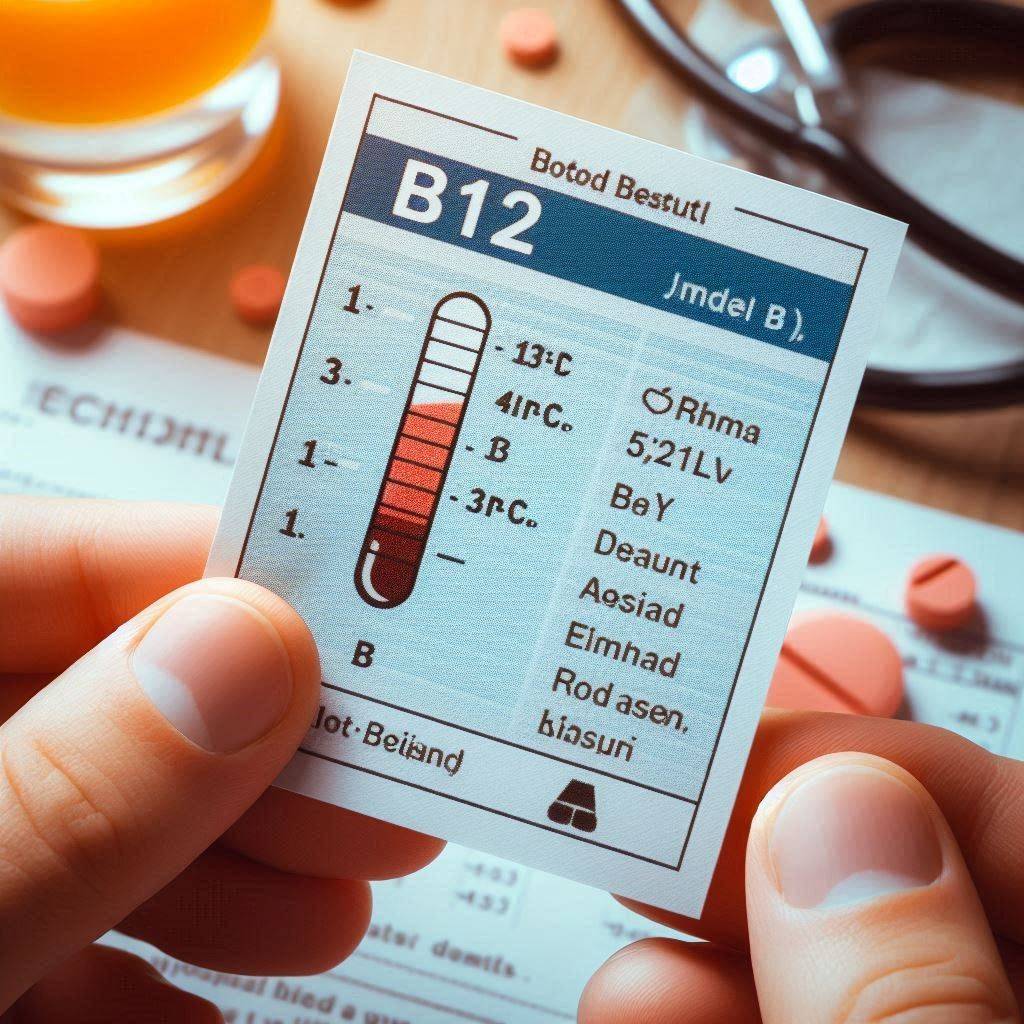Are Low B12 Levels Dangerous: 7 Reasons to Check Your Levels Now
Discover Are Low B12 Levels Dangerous and learn 7 crucial reasons to check your levels now. Protect your health with our comprehensive guide.
Quick Guide: Are Low B12 Levels Dangerous

Are low B12 levels dangerous? Absolutely. Low B12 can lead to:
- Anemia
- Neurological problems
- Cognitive decline
- Cardiovascular issues
- Weakened immune system
- Fatigue and weakness
- Digestive problems
If you experience unexplained fatigue, tingling sensations, or memory issues, get your B12 levels checked ASAP.
Introduction

Vitamin B12 is a crucial nutrient that your body needs but can’t produce on its own. As someone who has personally struggled with B12 deficiency, I can attest that the question “Are low B12 levels dangerous?” is not just academic – it’s a vital health concern that many people overlook.
In this comprehensive guide, we’ll explore the seven compelling reasons why you should take your B12 levels seriously. We’ll delve into the dangers of B12 deficiency, how to recognize the symptoms, and what you can do to maintain healthy B12 levels.
Understanding B12: The Basics
Before we dive into are low B12 levels are dangerous, let’s quickly review what B12 does in your body:
- Helps form red blood cells
- Supports nerve function
- Aids in DNA synthesis
- Plays a role in fatty acid and amino acid metabolism
7 Reasons are Low B12 Levels Are Dangerous
-
Anemia: When Your Blood Can’t Keep Up
Are low B12 levels dangerous for your blood? Absolutely. B12 deficiency can lead to megaloblastic anemia, where your body produces large, immature red blood cells that can’t function properly.
Symptoms of B12 deficiency anemia:
- Fatigue
- Shortness of breath
- Pale or yellowish skin
- Irregular heartbeats
Personal experience: When my B12 levels were at their lowest, I remember feeling winded just from climbing a flight of stairs. It was like my body couldn’t get enough oxygen, no matter how deeply I breathed.
-
Neurological Problems: Your Nerves Need B12
Are low B12 levels dangerous for your nervous system? B12 is crucial for maintaining the myelin sheath that protects your nerves.
Potential neurological issues:
- Tingling or numbness in hands and feet
- Balance problems
- Vision changes
I’ve experienced the tingling sensation in my fingers firsthand. It started subtly but became more noticeable over time, especially when typing or using my phone.
-
Cognitive Decline: Protecting Your Brain
Are low B12 levels dangerous for your brain? Research suggests they can be. B12 deficiency has been linked to:
- Memory problems
- Difficulty concentrating
- Depression
- In severe cases, dementia-like symptoms
During my struggle with B12 deficiency, I noticed a significant “brain fog.” Simple tasks became challenging, and I often found myself forgetting important details.
-
Cardiovascular Risks: Your Heart’s Hidden Enemy
While less commonly discussed, Are low B12 levels dangerous for your heart health? B12 deficiency can lead to elevated homocysteine levels, which may increase your risk of:
- Heart disease
- Stroke
- Blood clots
-
Weakened Immune System: Your Body’s Defense at Risk
Are low B12 levels dangerous for your immune system? They can be. B12 plays a role in the production and maturation of white blood cells.
Potential immune system issues:
- Increased susceptibility to infections
- Slower wound healing
- Chronic inflammation
During my B12 deficiency, I noticed I was catching colds more frequently, and they seemed to linger longer than usual.
-
Fatigue and Weakness: When Your Energy Tanks
One of the most common and noticeable signs that Are low B12 levels dangerous is persistent fatigue and weakness.
Symptoms to watch for:
- Extreme tiredness even after rest
- Muscle weakness
- Lack of energy for daily activities
I vividly remember days when I could barely drag myself out of bed, despite sleeping for 10 hours. It felt like my body was running on empty all the time.
-
Digestive Problems: The Gut-B12 Connection
Are low B12 levels dangerous for your digestive system too? B12 deficiency can lead to:
- Loss of appetite
- Constipation
- Weight loss
- Soreness of the tongue
Personally, I experienced a noticeable decrease in appetite and occasional constipation during my B12 deficiency period.
How to Check Your B12 Levels
Now that we’ve established why low B12 levels are dangerous, let’s talk about how to check your levels:
- Blood test: The most common method
- Methylmalonic acid (MMA) test: More sensitive than standard B12 blood tests
- Homocysteine test: Can indicate functional B12 deficiency
When I suspected my B12 levels were low, I opted for both a standard B12 blood test and an MMA test for a more comprehensive picture.
Treating B12 Deficiency
If you find that your B12 levels are low, don’t panic. There are several effective treatment options:
- Oral supplements
- Sublingual (under the tongue) supplements
- B12 injections
- Dietary changes
In my case, I started with oral supplements but found that sublingual B12 worked better for me. Your doctor can help determine the best treatment plan for your specific situation.
Preventing B12 Deficiency
Prevention is always better than cure. Here are some tips to maintain healthy B12 levels:
- Eat B12-rich foods (meat, fish, eggs, dairy)
- Consider fortified foods if you’re vegetarian or vegan
- Get regular check-ups, especially if you’re in a high-risk group
- Take supplements if recommended by your doctor
As someone who has dealt with B12 deficiency, I now make sure to include B12-rich foods in my diet and take a daily supplement as a precaution.
Frequently Asked Questions: Are Low B12 Levels Dangerous
Q: What happens if your B12 is dangerously low?
A: When your B12 levels are dangerously low, several serious health issues can occur:
- Severe anemia: Your body can’t produce enough healthy red blood cells, leading to extreme fatigue, shortness of breath, and potential heart problems.
- Neurological damage: You may experience numbness or tingling in your extremities, balance issues, and in severe cases, paralysis.
- Cognitive decline: Memory loss, confusion, and even dementia-like symptoms can develop.
- Increased cardiovascular risk: Low B12 can lead to elevated homocysteine levels, increasing your risk of heart disease and stroke.
- Gastrointestinal problems: You might experience a loss of appetite, weight loss, constipation, or diarrhea.
- Immune system weakening: Your body becomes more susceptible to infections and illnesses.
- Depression and mood changes: Severe B12 deficiency can lead to depression, irritability, and even psychosis in extreme cases.
It’s crucial to address dangerously low B12 levels promptly to prevent these irreversible health issues.
Q: What is a critically low B12 level?
A: The definition of a critically low B12 level can vary slightly depending on the laboratory and the specific test used. However:
- Below 200 pg/mL (picograms per milliliter) is considered deficient
- 200-300 pg/mL is considered borderline deficient
- Above 300 pg/mL is considered normal
Critically low B12 levels are typically those falling significantly below 200 pg/mL. Some experts consider levels below 150 pg/mL as critical, especially if symptoms are present.
It’s important to note that some people may experience symptoms of B12 deficiency even with levels in the “normal” range, which is why additional tests like methylmalonic acid (MMA) and homocysteine levels are sometimes used for a more accurate diagnosis.
Q: What are the warning signs of vitamin B12 deficiency?
A: The warning signs of vitamin B12 deficiency can be subtle at first but typically worse over time. Here are the key symptoms to watch for:
- Fatigue and weakness
- Pale or jaundiced skin
- Shortness of breath
- Dizziness
- Irregular heartbeats
- Numbness or tingling in hands and feet
- Difficulty walking (staggering, balance problems)
- Vision changes
- Tongue swelling or soreness
- Memory loss and difficulty thinking
- Mood changes (depression, irritability)
- Gastrointestinal symptoms (constipation, diarrhea, loss of appetite)
Personal experience: When I was dealing with B12 deficiency, I first noticed persistent fatigue and a strange tingling in my fingers. Over time, I also experienced memory fog and occasional dizziness, which prompted me to get tested.
Q: What is the fastest way to fix B12 deficiency?
A: The fastest way to address B12 deficiency depends on the severity of the deficiency and individual factors. However, here are the most effective methods:
- B12 Injections: This is often the fastest method, especially for severe deficiency. Injections bypass the digestive system, allowing for quick absorption.
- High-dose oral supplements: For less severe cases, high-dose oral supplements (1000-2000 mcg daily) can be effective.
- Sublingual B12: These tablets dissolve under the tongue, allowing for faster absorption than traditional oral supplements.
- Nasal gel: In some cases, a B12 nasal gel may be prescribed for quick absorption.
- Dietary changes: While not the fastest method alone, increasing consumption of B12-rich foods is crucial for long-term management.
Conclusion
Are low B12 levels dangerous? The answer is a resounding yes. From anemia and neurological issues to cognitive decline and cardiovascular risks, B12 deficiency can have far-reaching effects on your health. By understanding the risks, recognizing the symptoms, and taking proactive steps to maintain healthy B12 levels, you can protect yourself from these dangers.
Thank you for reading this comprehensive guide. Remember, if you suspect you might have low B12 levels, don’t hesitate to consult with your healthcare provider.
For more information on nutrition and health, check out these related posts:
- How to Get All the Vitamins You Need Daily: Your Health Booster Guide
- Best Diets 2024: Discover the Ultimate Path to Wellness!

Adel Galal is a health and wellness writer with over 30 years of experience studying and writing about health, fitness, nutrition, and healthy living. He is the founder of NextFitLife.com, where he shares practical, evidence-based guidance to support long-term health at any age. Adel’s mission is simple:
to help people make smarter health choices that fit real life, at any age.



